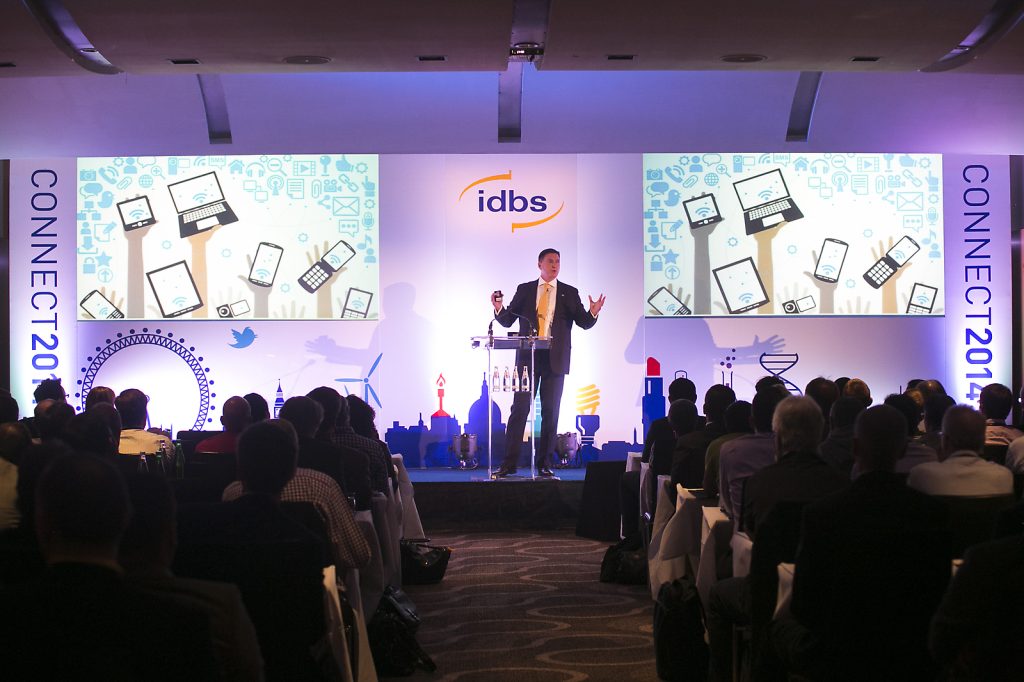1. Corporate Event Management
Corporate Event Management refers to the planning, organizing, and executing of business-related events designed to achieve specific objectives, such as building relationships, launching products, celebrating milestones, or enhancing a company’s brand image. These events require a professional approach because they reflect directly on the reputation and culture of the organization.

Key Types of Corporate Events:
- Conferences & Seminars – Knowledge-sharing, training, or industry discussions.
- Product Launches – Introducing new products or services to clients, partners, and media.
- Team-Building Activities – Strengthening employee engagement and collaboration.
- Trade Shows & Exhibitions – Showcasing products/services to a larger audience.
- Board Meetings & AGMs – High-level discussions and decision-making.
- Corporate Parties & Celebrations – Annual day, success parties, or festivals.
Important Elements of Corporate Event Management:
- Objective Setting – Defining the purpose (networking, training, branding, etc.).
- Budget Planning – Managing costs while maintaining professionalism.
- Venue Selection – Choosing a location that aligns with the event’s theme and scale.
- Logistics & Coordination – Catering, travel, accommodation, and technology.
- Technology Use – Virtual events, hybrid setups, presentations, and event apps.
- Branding & Communication – Ensuring the company’s values are reflected throughout.
- Feedback & Evaluation – Measuring success and ROI after the event.
👉 In short, corporate event management is about creating impactful experiences that support business goals while leaving a lasting impression on attendees.
2. Seminars and Conferences

Seminars
A seminar is a focused educational or training session, usually attended by a smaller group of people.
- Purpose: To share knowledge, teach specific skills, or discuss a niche topic.
- Audience: Students, professionals, or employees.
- Duration: Short (a few hours to one day).
- Format: Lecture-style, interactive discussions, Q&A sessions.
- Examples:
- A leadership skills seminar for employees.
- A digital marketing seminar for students.
- A financial planning seminar for professionals.
Key Elements in Seminar Management:
- Choosing subject experts or speakers.
- Selecting a suitable venue (classroom, hall, or virtual platform).
- Providing supporting materials (presentations, handouts, recordings).
- Ensuring smooth technical support (AV setup, microphones, projectors).
Conferences
A conference is a larger, more formal event bringing together participants from various places, often focused on industry-wide discussions or networking.
- Purpose: To exchange ideas, present research, discuss trends, and build connections.
- Audience: Industry experts, academicians, business professionals, and stakeholders.
- Duration: Longer (1–3 days or more).
- Format: Keynote speeches, panel discussions, workshops, breakout sessions, exhibitions.
- Examples:
- An international medical conference.
- A business and entrepreneurship conference.
- A tech innovation summit.
Key Elements in Conference Management:
- Planning multiple sessions and speakers.
- Arranging registrations, accommodation, and travel.
- Providing networking opportunities (luncheons, breakout rooms, exhibitions).
- Using technology (apps for scheduling, live streaming, hybrid participation).
3. Music Concerts

Music concerts are one of the most popular and large-scale events in the field of event management. They involve bringing together artists, audiences, sponsors, and production teams to create an engaging live entertainment experience.
Key Aspects of Managing Music Concerts:
- Planning & Coordination
- Choosing the venue (stadium, auditorium, open ground, club, etc.).
- Deciding the concert type (indoor, outdoor, live streaming, hybrid).
- Securing necessary permissions and licenses (sound, police, copyright).
- Artist & Talent Management
- Booking performers, musicians, or bands.
- Managing contracts, schedules, rehearsals, and hospitality.
- Technical Setup
- Stage design and lighting.
- Sound systems and acoustics.
- Special effects (LED screens, fireworks, smoke, etc.).
- Audience Management
- Ticketing and entry management.
- Seating or standing arrangements.
- Crowd control, safety, and security.
- Marketing & Promotion
- Advertising through social media, radio, posters, and influencers.
- Building hype with teasers, press releases, and promotions.
- Logistics & Operations
- Transportation for artists and crew.
- Food stalls, merchandise counters, medical facilities.
- Coordination of staff and volunteers.
- Post-Event Management
- Feedback collection.
- Financial settlements with sponsors and vendors.
- Sharing highlights through media coverage.
4. Exhibition Management

Exhibition Management refers to the process of planning, organizing, and executing exhibitions or trade shows, where businesses, artists, or organizations display their products, services, or creative works to a targeted audience. It is an important part of event management and plays a big role in marketing, networking, and brand promotion.
🔹 What is Exhibition Management?
It involves the strategic planning and coordination of exhibitions to ensure smooth operations, maximum participation, and impactful experiences for exhibitors and visitors.
🔹 Key Objectives of Exhibition Management
- Showcasing products, services, or innovations
- Building brand image and awareness
- Networking with potential clients, partners, and industry experts
- Generating sales leads and business opportunities
- Providing an engaging visitor experience
🔹 Important Elements of Exhibition Management
- Planning & Research – Define objectives, target audience, and theme.
- Venue Selection – Choosing the right location with adequate space and accessibility.
- Booth & Stall Design – Creative setups to attract visitors.
- Marketing & Promotion – Online/offline campaigns, PR, social media promotions.
- Logistics & Operations – Lighting, sound, displays, seating, security, and permits.
- Registration & Ticketing – Smooth entry process for exhibitors and attendees.
- On-Site Management – Coordinating staff, managing schedules, solving real-time issues.
- Post-Exhibition Activities – Feedback collection, performance analysis, lead follow-up.
🔹 Types of Exhibitions
- Trade Exhibitions – Industry-specific (B2B) events for networking and deals.
- Consumer Exhibitions – Open to the general public (e.g., auto expos, book fairs).
- Art & Cultural Exhibitions – Showcasing artworks, handicrafts, or cultural themes.
- Educational/Science Exhibitions – School, college, or science-driven exhibitions.
🔹 Skills Needed for Exhibition Management
Strong communication & networking
Organizational & project management skills
Creativity in booth/stall design
Marketing & PR strategies
Budgeting and financial management
5. Fashion Shows

Meaning
Fashion shows are live events organized to showcase new clothing collections, accessories, or styles by designers and brands. They serve as a platform to present creative designs to buyers, media, influencers, and the public.
🔹 Importance in Event Management
- Brand Promotion – Helps designers and fashion labels create brand identity.
- Networking – Connects designers, models, stylists, photographers, and media.
- Market Launch – Introduces new trends and collections to buyers and consumers.
- Entertainment & Glamour – Adds prestige and creativity to the events industry.
🔹 Key Elements of Managing a Fashion Show
- Concept & Theme – Deciding the style, mood, or unique concept for the show.
- Venue Selection – From luxury hotels to open runways, venue must align with the theme.
- Stage & Lighting Design – Runway setup, background, and lighting to highlight garments.
- Model Management – Hiring professional models, choreographing walks, and rehearsals.
- Backstage Management – Costume changes, makeup, and styling coordination.
- Promotion & Media – PR campaigns, social media, invitations to press & influencers.
- Audience Engagement – Creating a memorable experience for buyers and guests.
- Sponsorship & Budgeting – Partnering with brands for funding and exposure.
🔹 Types of Fashion Shows
- Designer Shows – Individual designers showcasing their collections.
- Seasonal Shows – Spring/Summer, Autumn/Winter collections.
- Charity Fashion Shows – Organized to raise funds.
- Corporate/Brand Shows – Clothing brands promoting their latest trends.
- Thematic/Experimental Shows – Creative concepts blending art, music, and fashion.

